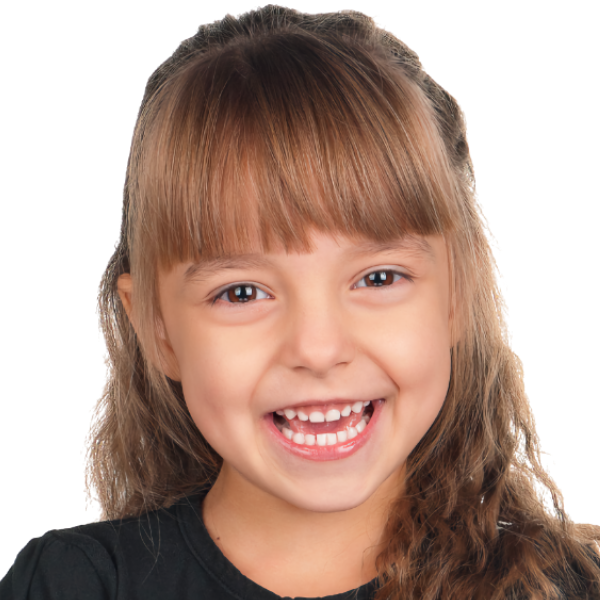Learn The Parenting Ropes!
Guidelines Describe The Development
Of Your Child So You're Not Left Guessing
Learn The Parenting Ropes!
Guidelines Describe The Development Of Your Child So You're Not Left Guessing
PRESCHOOL & CHILD CARE CENTER SERVING CENTENNIAL & PARKER, CO
how old is your child?
Developmental Milestones Give You A Great Idea What To Expect
Learning about and understanding developmental milestones is not only reassuring for a parent, but can also help you identify any potential problems earlier on. Every child develops at their own pace, yet these guidelines give you an informed idea of what to expect so you can ask for help when you need it.
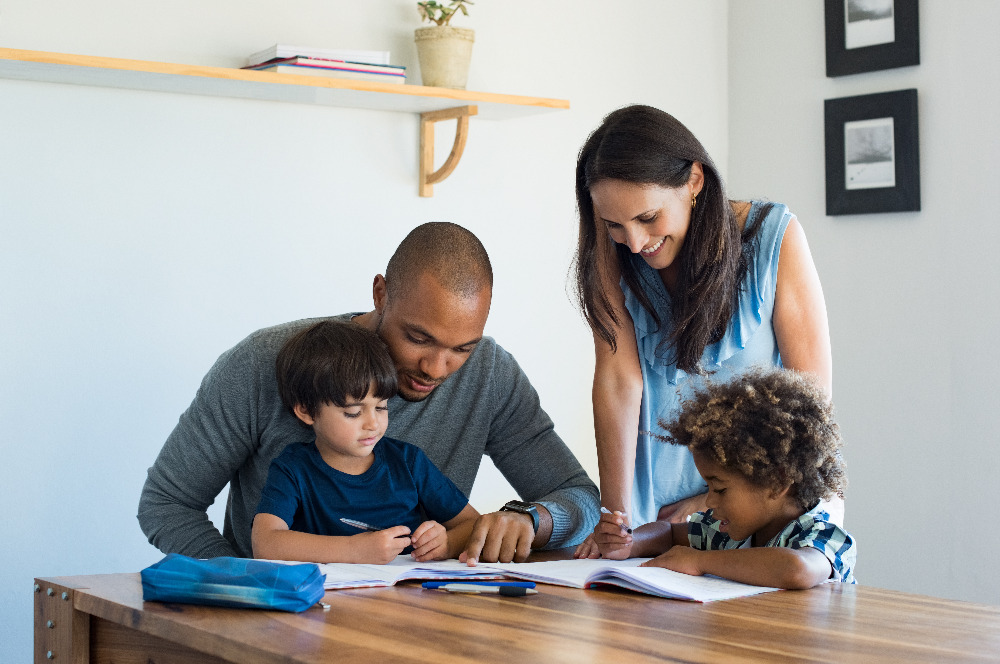
The Colorado Early Learning & Development Guidelines
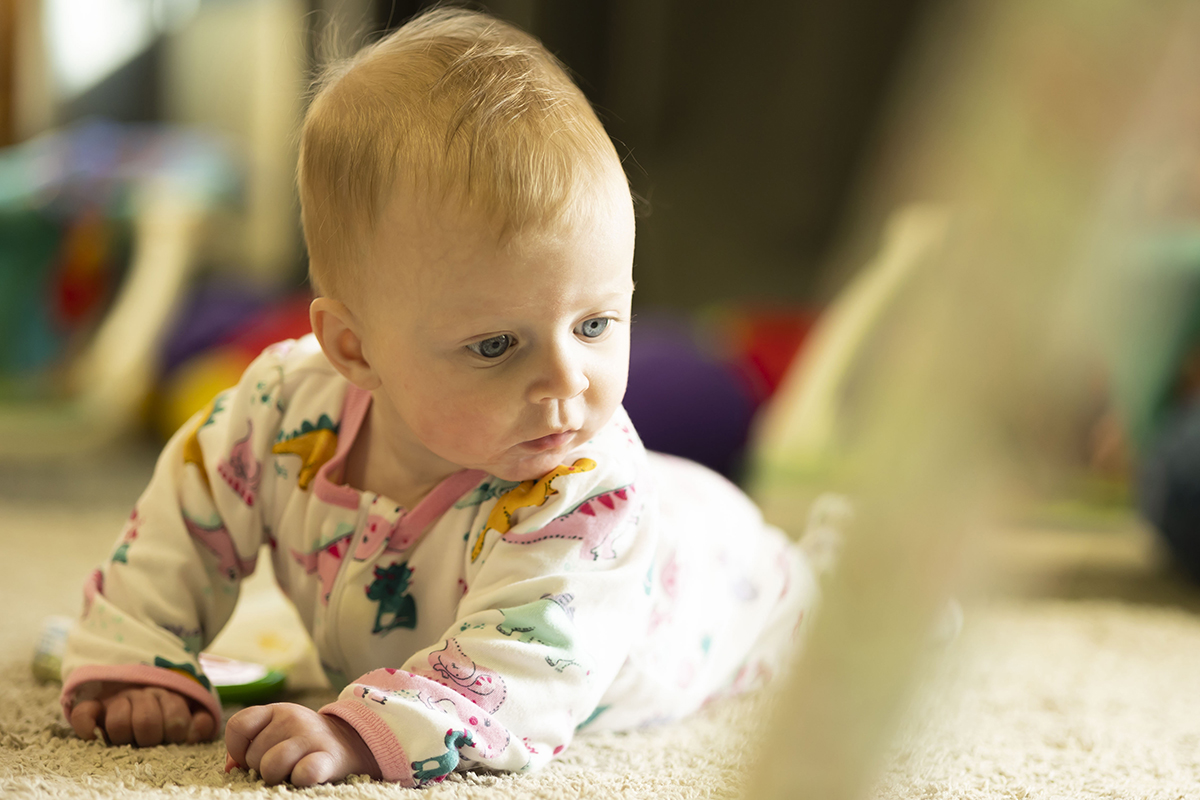
0-4 Months — Changing In The Blink Of An Eye
Your baby changes and grows quickly during the first four months of life. They learn by touching, listening, and seeing things in the world around them. During this stage, they start communicating their needs and developing attachments and security with caregivers.
At This Age, Your Child May:
- Be sensitive to bright lights or loud sounds and activities. When startled, they may react by throwing their arms out to the sides
- Snuggle against your body or adjust their posture to get comfortable when you’re feeding or holding them
- Follow your face with their eyes, turn their head toward you, and respond to your voice by smiling and copying your facial expressions
- Develop trust and feel safe with you and their caregivers
Help Them Develop By:
- Not panicking — these are normal responses. Lower the light or noise source or move your baby to a quieter room to shield them from the noise or activity
- Trying different postures and positions during their waking hours, such as on your shoulder, in your arms, and on their back, stomach, or side
- Looking at them quietly and warmly and matching their level of interest
- Teaching them what to expect by providing consistent routines, like changing and feeding them the same way every time
4-8 Months — Delighting In Discovering New Skills
Your baby explores objects by tasting, reaching, kicking, pulling, grasping, and letting go. They enjoy learning new skills as they smile, coo, laugh, and engage with you and their caregivers by listening and responding to language by mimicking sounds and rhythms.
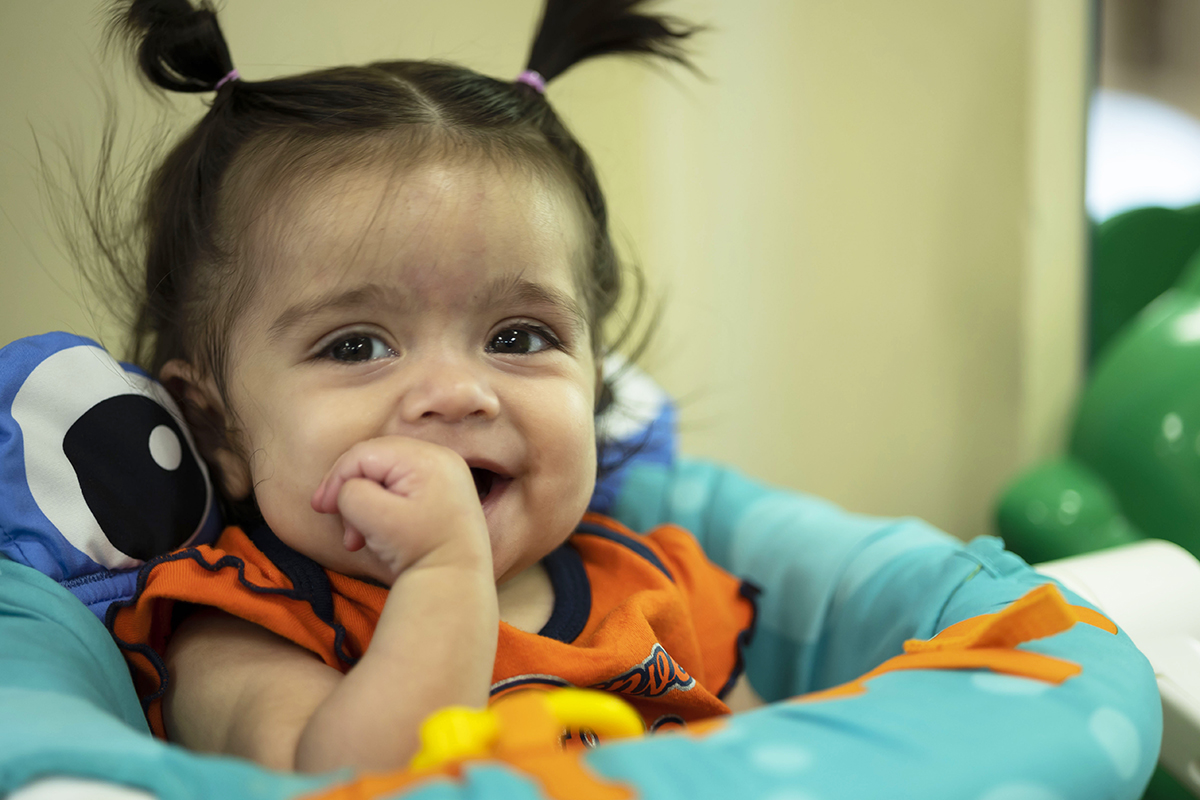
At This Age, Your Child May:
- Hold up their head, roll from their back to their stomach (and vice versa), sit up without support, and go from sitting to being on their hands and knees
- Explore an object by looking at, touching, holding, mouthing it, and looking at it again
- Shake toys or bang a spoon to hear the sound they make, then shake or bang them again
- Repeat babbling sounds, such as “mamamama” or “dadadada”
- Cry when they hear another baby crying, or stop what they’re doing to look at a crying child
- Respond to waving by waving themselves or saying “bye-bye”
Help Them Develop By:
- Giving them opportunities to move and explore by laying them on a blanket in a safe area on the floor
- Exposing your infant to different indoor and outdoor sensory experiences, like sounds, sights, textures, tastes, smells, and movements
- Offering toys your baby can explore, grasp, and get a response from. Shake toys that make sounds so they can react and do the same.
- Responding to your baby’s babbling and speak with them as if they understand everything you’re saying. Mimic their sounds and gestures and allow time for them to imitate you
- Explaining what those children may be feeling according to their facial expressions, sounds, and gestures
- Role-playing social language games by using everyday routines like blowing kisses or waving goodbye
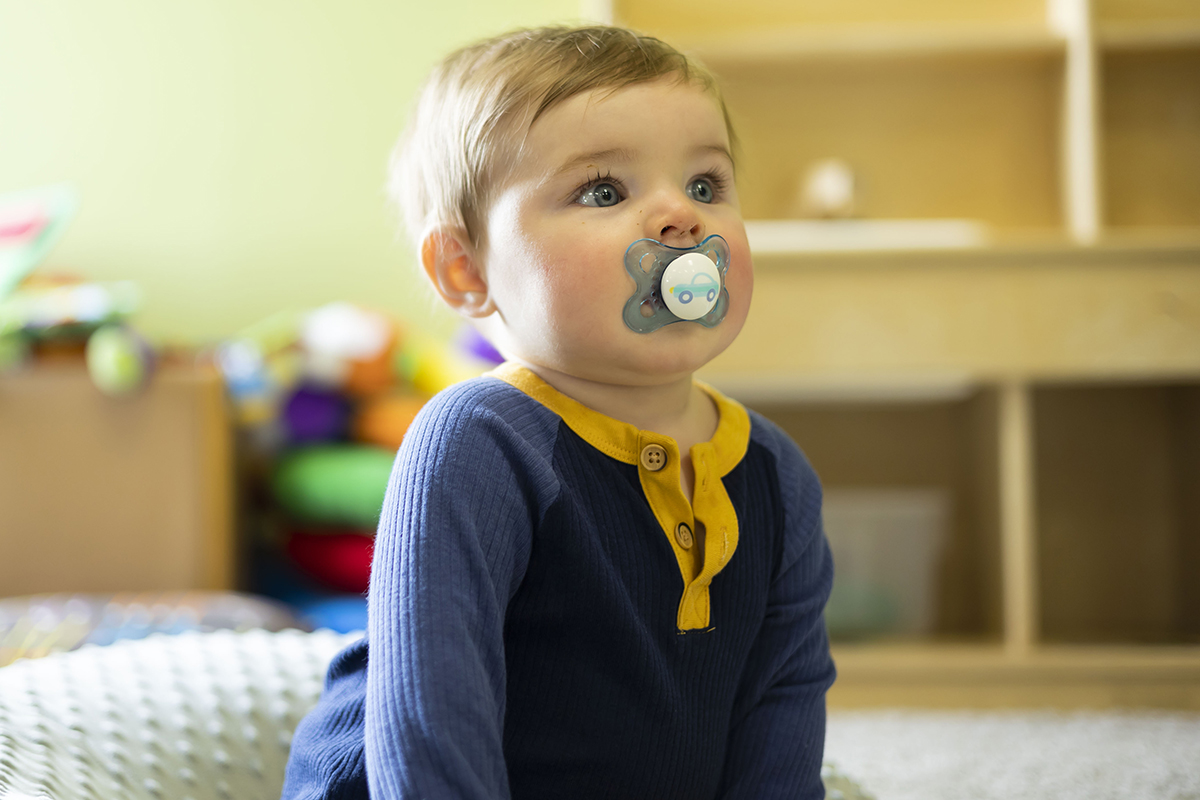
9-18 Months — Ready To Explore The World
Your child has become quite the mover and is ready to explore the world. They are strongly attached to their caregivers and are fascinated with their peers. They enhance their communication by babbling and can understand and respond to many words.
At This Age, Your Child May:
- Crawl, stand using furniture for support, and walk with or without using support
- Look for attention from you or their caregiver when upset, and use comfort objects like blankets or stuffed animals to calm themselves down
- Use a small stool to reach for toys or books because they’ve seen you do the same
- Point to or name body parts when asked
- Use blocks to build a tower, kick it over, build it up again, and then knock it down again
- Put two words together, such as “Mommy do”
Help Them Develop By:
- Providing props, such as toys with wheels, to help them stand and walk. When they want something, encourage them to move to “go get it”
- Acknowledging when they’ve comforted themselves by pointing out what they did to make themselves feel better and hugging, smiling, and laughing with them
- Encouraging them to problem-solve and helping them only when they show that they need it
- Playing naming games about body parts while looking in the mirror or holding your child
- Giving them “cause and effect” toys, such as toys with moving parts (like cars or jack-in-the-boxes) and show them how they work
- Talking and reading together by using new and familiar words or sign language and by repeating words and short phrases
19-36 Months — Developing Independence & Self-Identity
Your toddler becomes independent as they build their sense of self-identity. They insist on trying new things without help and try to control their environments. They show interest in books, toys, and art, and have better communication skills.
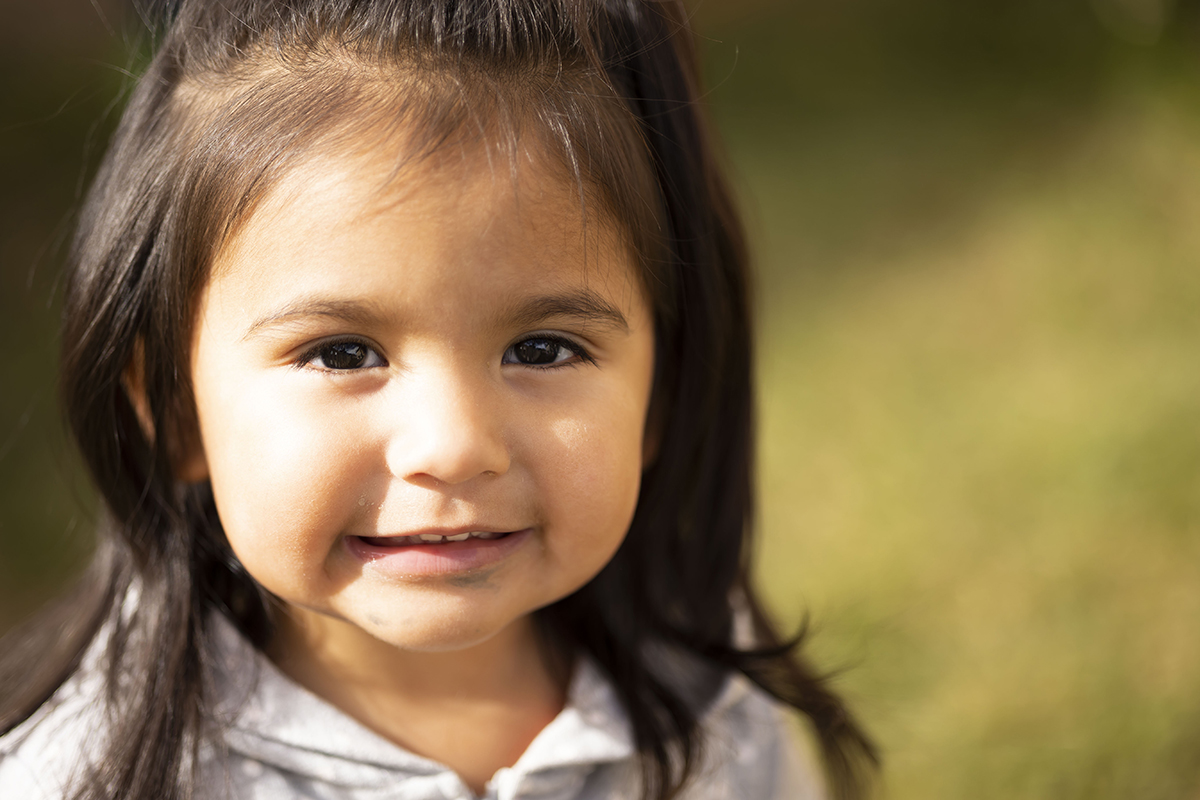
At This Age, Your Child May:
- Walk backwards, climb ladders, or pedal a tricycle
- Insist on zipping up their jacket themselves and refuse help
- Sort their toys according to soft and hard
- Compare themselves to other children. For example, “____ plays cars like me”
- Use between 300-1000 words (kids who speak a different language at home may mix that language with English in the same sentence)
- Master basic motor skills like drinking from a cup without spilling much or helping to set the table
Help Them Develop By:
- Joining in and playing games like throwing, rolling, kicking, and chasing a ball
- Praising them for trying and allowing them time to do things themselves
- Encouraging matching and sorting by showing them similarities and differences
- Providing opportunities for them to interact with kids from different cultures, ethnicities, and abilities
- Encouraging them to participate when singing or telling stories. If you speak a language other than English at home, help them when they mix languages in a sentence by repeating what they said by using words from just one language
- Giving them tools to enable them to do things on their own, such as a coat hook within reach or a stool at the sink
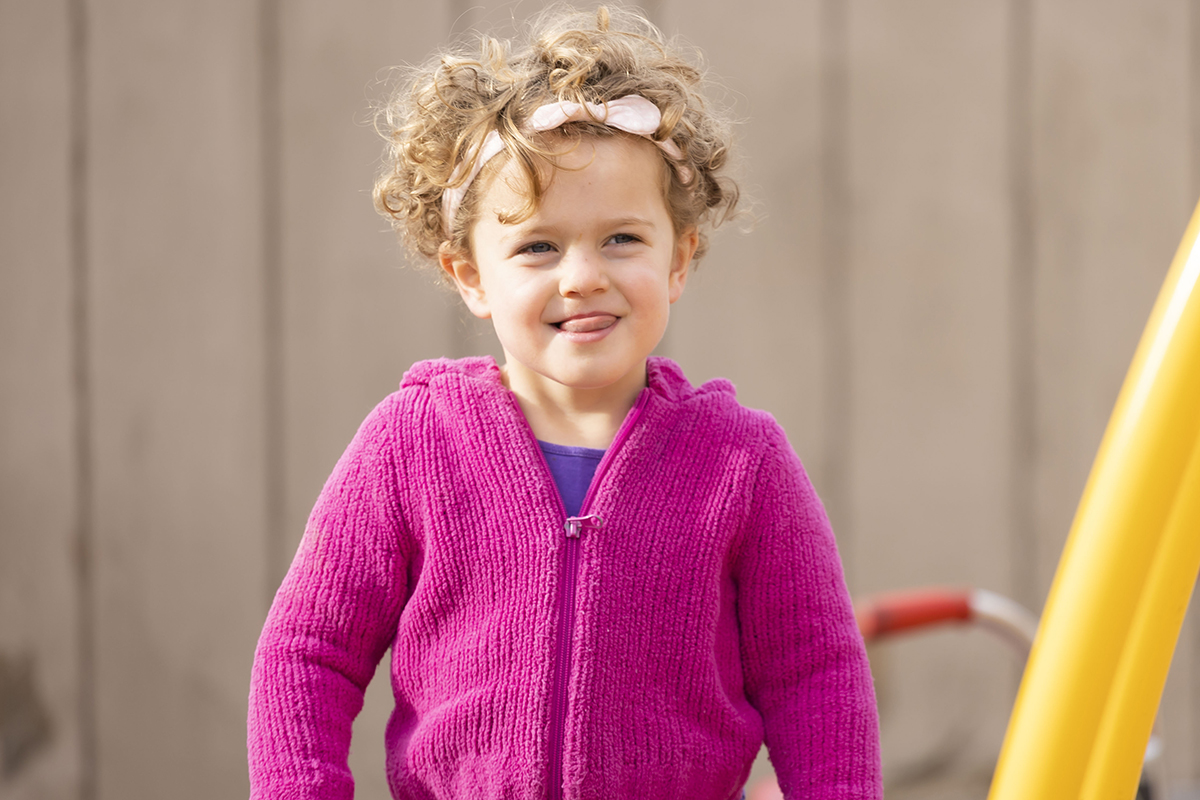
3-5 Years — Building Skills For Elementary School & Beyond
Your child prepares for Kindergarten and beyond as their brains, feelings, and bodies continually develop. At this age, they’re still exploring their world and learning shifts to different subjects, like math and science.
At This Age, Your Child May:
- Follow simple routines, rules, and directions and have better control of their feelings and impulses
- Think problems through and try to fix them
- Pretend to read books and write by scribbling. Recognize rhyming words and the letters in their name
- If English is not their first language, they may understand and speak a lot more English
- Become better at sorting objects by size and color, counting, and math skills
- Notice things in nature and have questions about how things work in the natural world
- Act on their imagination and creativity by expressing themselves and ideas in different ways like drawing or moving to music they like
Help Them Develop By:
- Creating, explaining, and modeling simple rules, like bedtime routines, that make it easy for them to understand
- Asking questions and talking with them about real problems and different ways of handling them
- Reading to them and pointing out words at home, in the classroom, and neighborhood. Encourage them to trace and write letters
- Describing things, using real objects and actions to help them understand what you’re saying, reading, or singing in English
- Taking every opportunity to count, group, and sort objects and materials
- Encouraging them to ask questions and then find the answers by thinking about and exploring the natural world around them
- Providing them with diverse music and arts and crafts supplies
5-8 Years — Time To Focus On Colorado’s Academic Standards
Your child continues to develop physically, emotionally, socially, and academically. As they transition to Kindergarten, they learn crucial skills that help in life and school. Their learning becomes more formal and focused on subjects categorized by Colorado’s Academic Standards, such as:
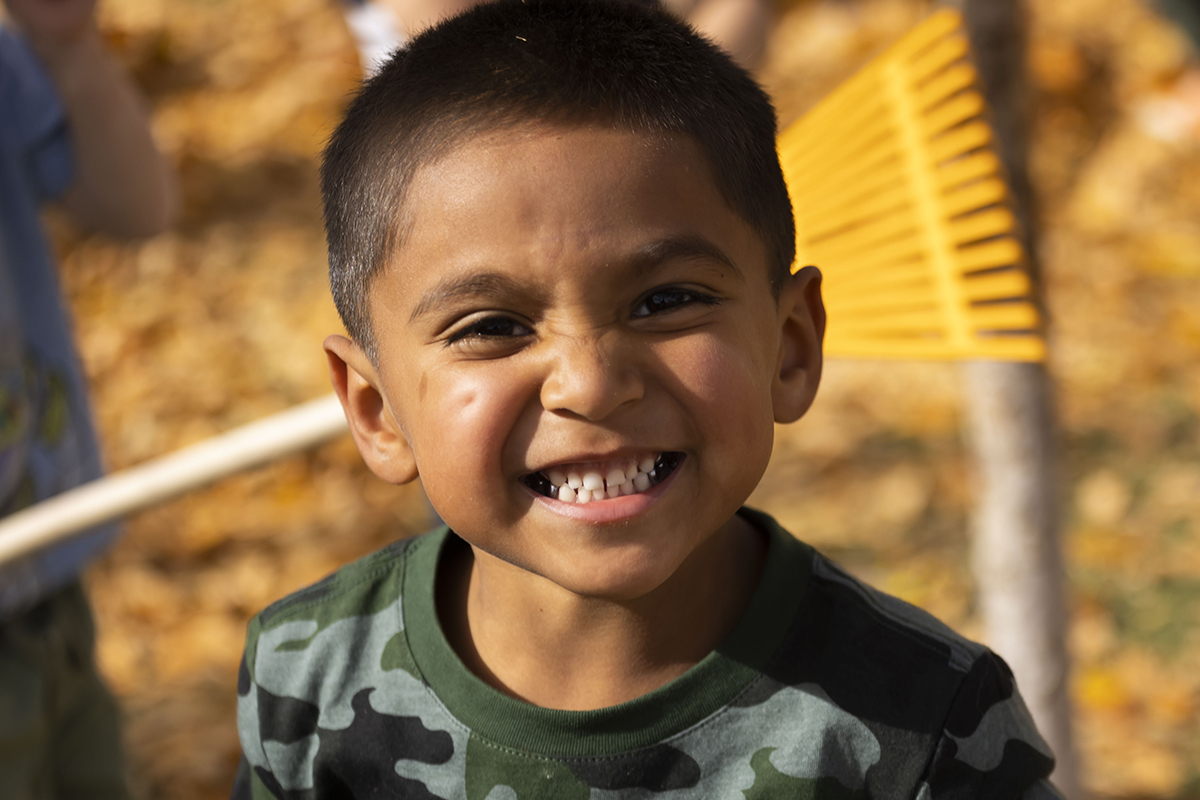
- Reading, Writing, & Communication: Your little learner begins writing the alphabet in Kindergarten and may be able to write complete sentences by third grade
- Mathematics: Your kiddo starts learning numbers and shapes in Kindergarten, and by third grade, they use those numbers to add, subtract, multiply, and divide
- Social Studies: Your child learns about geography, economics, history, and government
- Science: Your little one learns about living things and the world around them
- Visual Arts, Music, Dance, & Drama: Your child learns how to express themselves and builds self-confidence through the arts and performance
- Comprehensive Health & Physical Education: Your little learner requires plenty of rest and exercise at this age. They should understand how to stay safe and have the ability to follow directions
- World Languages: Learning new languages and cultures helps your child learn more about their own experiences and culture
Aid Their Development By:
- Showing a genuine interest in what they’re learning about in school
- Attending school events, visiting their classroom, and chatting with their teachers when you have questions
- Encouraging them to try new activities by arranging visits to the zoo, library, parks, or museum
- Making learning fun by writing or making up stories together or playing academic games
- Providing healthy food, encouraging exercise, and taking them to the doctor for routine checkups
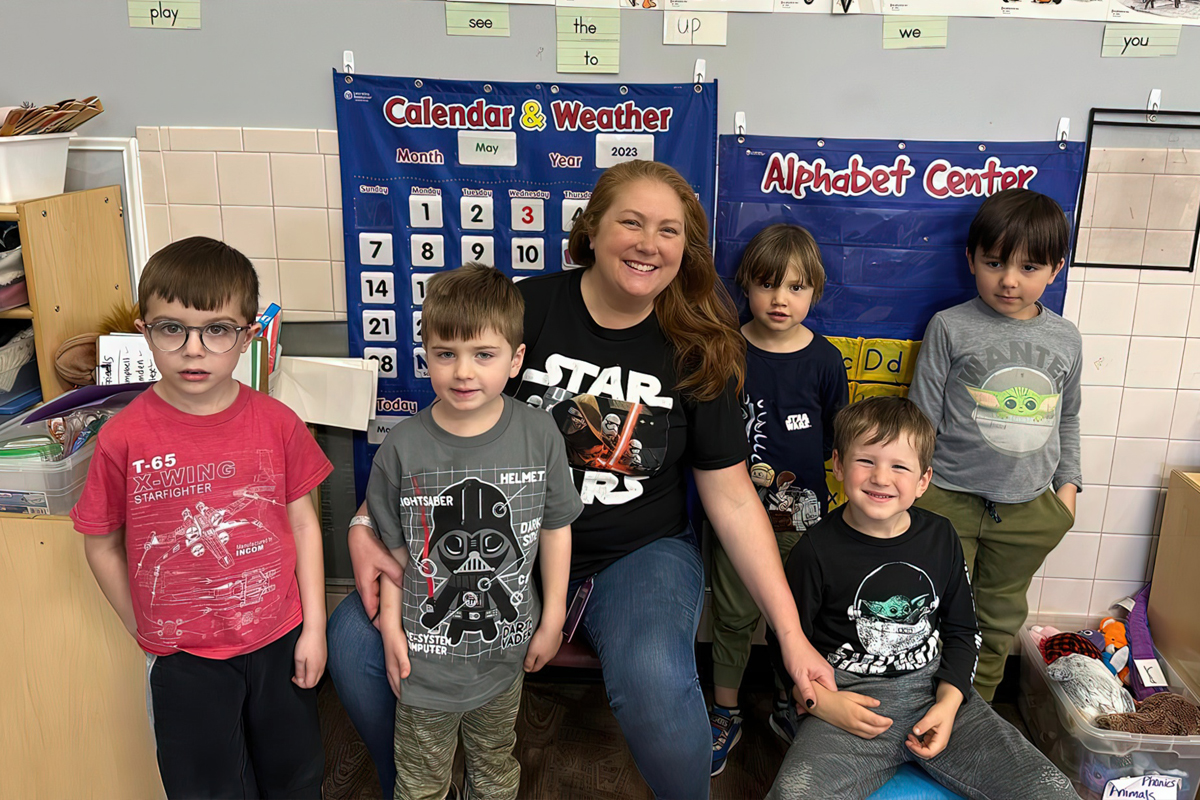
A Successful Foundation From Birth To Third Grade
Everything your child experiences from birth to third grade builds the foundation for long-term success. Visit the Colorado Early Learning and Development Guidelines page for helpful strategies to give your little learner the best start possible in school and life.
How Old Is Your Child?
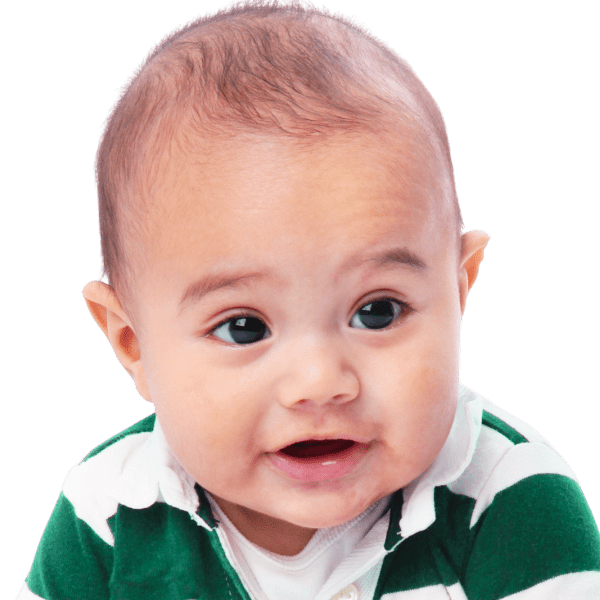
Infants
6 weeks - 15 months
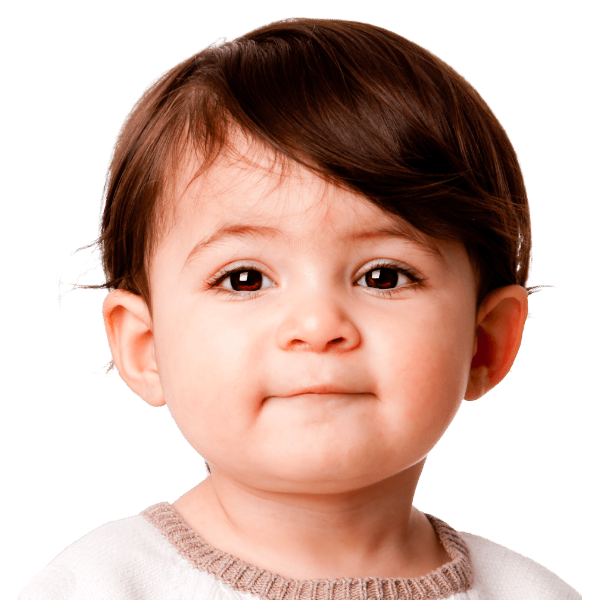
Toddlers
12 Months - 30 Months
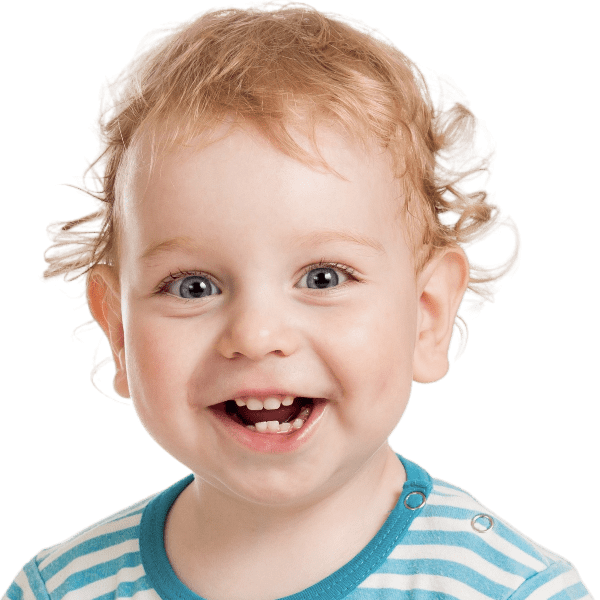
2 ½ Year-Olds
2 - 3 years
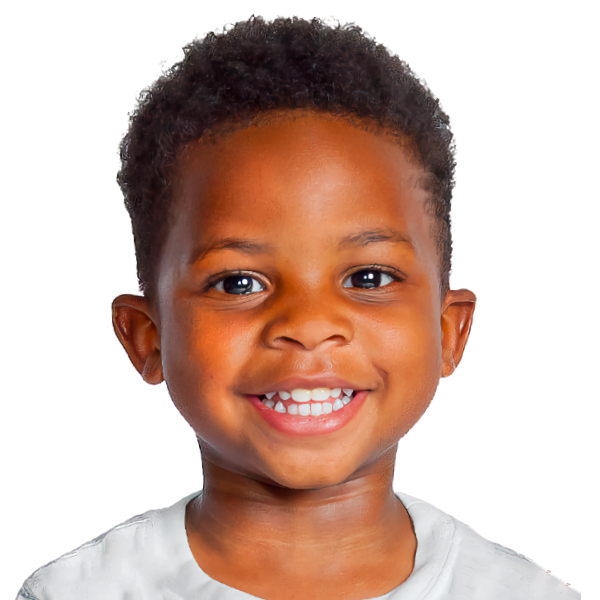
Preschool
3 - 4 years
